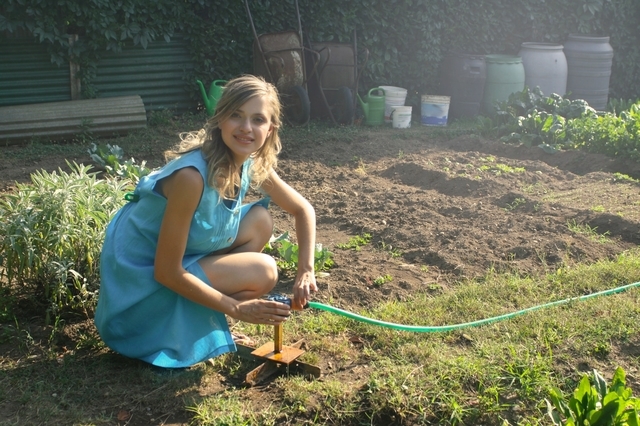When it comes to running your household, coming up with strategies to save money is a delicate task that requires you to use all of your brainpower and you can deliberate long and hard. Maybe you are thinking about solar panels or a Tesla battery.
There are many ways to make your garden more energy efficient. That said, saving energy in your home does not have to be all high-tech solutions and expensive equipment.
If you play your cards right, you can start saving money, having spent little to no effort or money as a part of the so-called “initial investment”, that is supposed to go right back into your pocket after a while.
Now, we are not saying that investing in high-tech equipment is a bad thing, nor that you should not do it as a part of your strategy to make your house more energy-efficient, but what we are saying is there are other ways in which you can make this happen.
In this article, we are going to concentrate on a rather important part of your household that tends to eat up a lot of resources – the garden.
As you will see, even some rudimentary energy-saving strategies can work wonders here, so there is no reason why you should not try to make the most of the techniques we are about to present to you. Here are some ways to make your garden more energy efficient.
Use Rainwater As An Irrigation Strategy
Using rainwater as an irrigation strategy can save you a fortune in the long run. It can reduce local flooding. This is a positive result of using such a strategy.
While it is fairly apparent right off the bat that rainwater can do only good to your garden (unless there’s a bout of acid rain, of course), taming the amount of precipitation can be a tad tough at times.
So, if you start collecting rainwater to use later on for watering the plants in your garden, you not only get it for free, but you also prevent this water from overflowing in some areas in your home, or getting too out of hand in the lower areas of your garden.
Usually, this can be achieved by using a gutter or two, so you don’t have to worry about having to spend an arm and a leg to make it happen.
You End Up Cutting Your Water Bill Considerably
Having a bunch of plants, that you need to take care of regularly when in season means you have to commit to spending quite a bit of money on water bills every month.
While the water bill may not be the most expensive of all bills, it still adds up after a while, which can take quite a bite out of your earnings in the long run.
So, another benefit of using rainwater in irrigation of your garden is that you cut down your water bill expenses, which can save you quite a lot of money.
You can then spend your saving on getting more cutting-edge equipment or something else you need to upgrade your garden.
Rain Gardens Are Fairly Easy To Take Care Of
Organizing your garden around rain-collecting containers and tools isn’t nuclear science, so you have a pretty good chance at succeeding at it, as long as you’re willing to dig a little bit or perhaps get one of those digging machines in there, too.
That said, setting it up is probably the most challenging part of the job (which is not that difficult as it is), so performing maintenance after that won’t represent that much of a problem later on.
Indeed, you can organize a healthy environment for your garden relatively easily with rainwater as the central piece of the puzzle, and then just build around that and add more and more energy-saving pieces as time goes on.
Go For Deciduous Shade Trees
While having a large oak or ash in your garden may seem like a rough deal come autumn (because of all the leaves you will need to collect), planting deciduous trees as a shade-providing option may be a more reasonable decision than you first think.
The thing is, deciduous trees will provide shade to you during the summer months, and then during the winter months, when you do want the sun rays to warm your house up – the leaves will be gone, reducing your electricity bill effectively.
Also, once you gather all of those leaves, you can use them later on, in composting. So you can save some money there, too.
Conclusion
All in all, nature around us gives us most of the ingredients we need for helping us run our gardens like clockwork.
The bottom line, making good use of rainwater, arranging your garden around it, as well as planting some useful shade trees may be all you need to make your garden more energy efficient and a big success too.
You can find much more information on living a holistic lifestyle in these free magazines and on our YouTube channel.
Author Bio

Mia Ackerson is a Melbourne-based writer. Loves writing about outdoor design and gardening based on fact and her research projects. She has consulted with gutter replacement experts while writing this article. She’s also interested in home decorations, baking, reading books, movies, and music.






